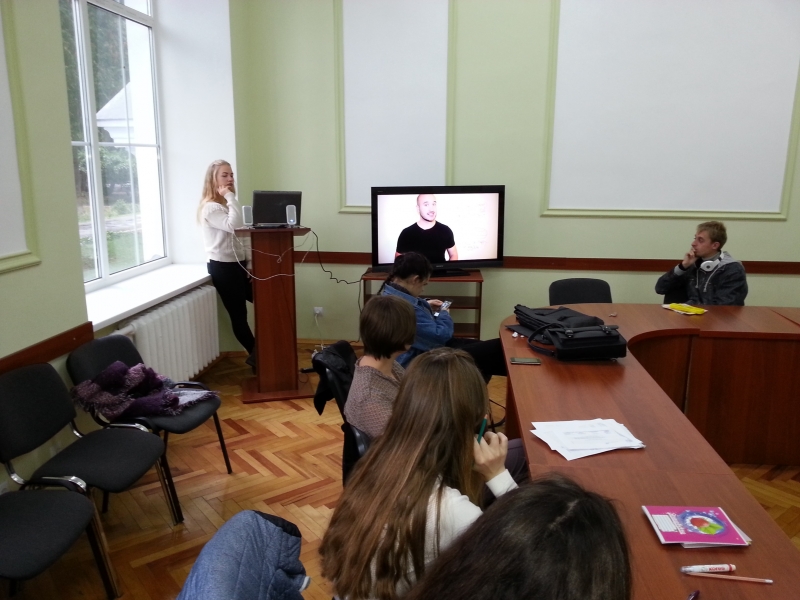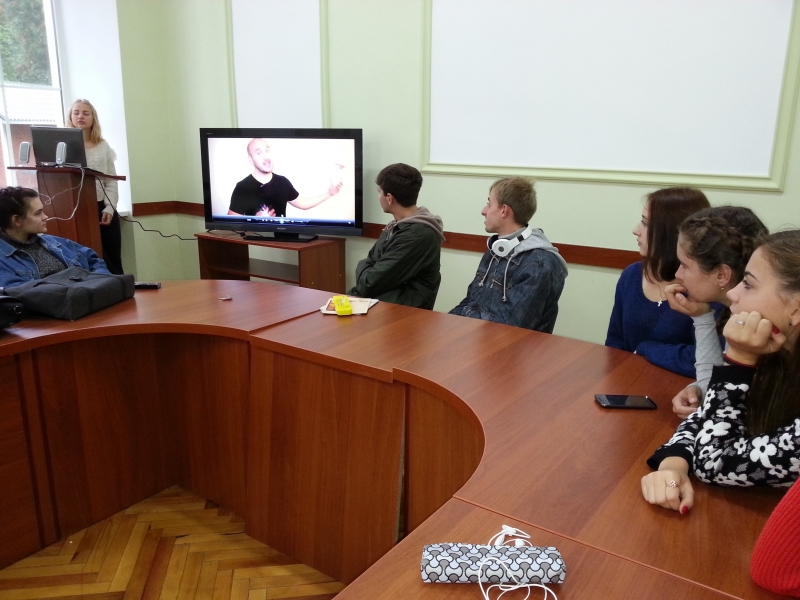Meeting of the translation club
Meeting of the translation club
October 10, 2017
What might be more interesting than grammar? Grammatical translation problems
On October 10, in the 24th audience, a meeting of the translation club took place at which reports were delivered by students from the 2nd year, the Phil16001 and Phil16002 groups, the issues of which concerned grammatical translation problems, including the translation of conditional sentences. We are accustomed to considering grammar dry, somewhat uninteresting, complex and incomprehensible. Some sections of the grammar of English are indeed difficult to master and actively use. Among such chapters, we can name the conditional sentences, which in English contain as many as five kinds, each of which must be clearly distinguished and used with the understanding of the context. It is far from sufficient to learn the rules - it is necessary to practice in translation, the execution of various kinds of exercises, the formulation of questions and the construction of answers to them - that is, to achieve automation of translation provided theoretical knowledge and practical application of them. To do this, students have prepared interesting presentations in which leading British and American philologists talk about conditional sentences, their types, differences, contexts, peculiarities of constructing sentences, so-called clauses, and their synonymous expressions.


At first everything in this material seemed incomprehensible, "confusing", unattainable. But after presentations with vivid pictures, examples, animation, phrases from famous songs and poems, grammatical cartoons, in which there are conditional sentences with deep philosophical content, gradually everything began to clear up. Though slowly but surely, students began to translate sentences almost without errors. There were smiles of joy, optimism, understanding and genuine interest in the grammar - what was the purpose of our meeting circle.
Associate Professor, Head of the Club H. I. Sydoruk









